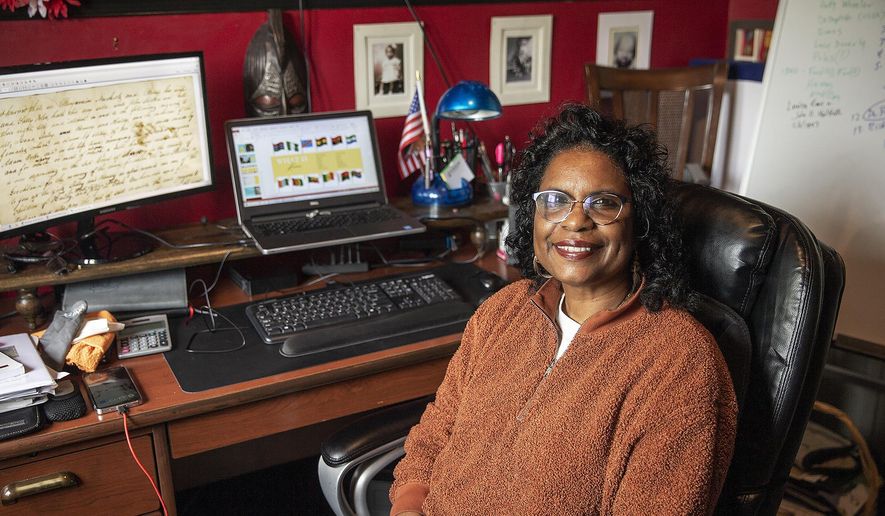FREDERICKSBURG, Va. (AP) — A genealogist in Fredericksburg has released the names of the families she will focus on for a research project identifying the oldest Black families in the city.
Paula Royster’s “Reclaiming Our Time” project was launched in March and she recently announced the families who will receive extensive DNA testing and additional research support on their ancestry.
The DNA testing will take place the morning of June 25.
A male member of those families will undergo testing to determine if their ancestors hail from one of the 12 African nations that had slave ships arrive at the Fredericksburg dock centuries ago.
“I’m extremely proud that this forward-thinking research project is happening right here in America’s most historic city,” Royster said.
Royster observed census records from 1810–60 and made a list of every Black family. She then determined who had been there the longest by who appeared first. Only free Blacks were counted on the census, Royster noted.
Royster encourages surviving members of the families to contact her to set up testing and get the research started.
The families are: Beverly (Poles), descendants of Betsy Lewis (Jackson), descendants of Maria Akers (Minor), Carter (Walker), Liverpool (Mundowney), Simmons (Hailstalk, Evans, Grant), Noel (Day, Hamm), descendants of Henry and Kesiah Lucas, descendants of Chester Fort (Ford, LeFort) and descendants of Amini Dab (Booker, Jackson).
Royster is the founder and CEO of the Center for African-American Genealogical Research. She’s also a published author who teaches coursework in humanities and social sciences.
Fredericksburg City Council donated $5,000 to her project. She’s also received donations from churches and private citizens. She’s hopeful the final outcome is that the city will support an African-American Cultural Heritage Center, where Black people can conduct research on their lineage, watch documentaries on the places they originated and cultivate a community garden.
“The reason why we’ve done this is our history has been hidden, omitted, erased and when we think about telling the story of the history of Fredericksburg, we think it ought to be more inclusive, diverse of all voices,” Royster said. “It’s important to this community to have this story told.”
Royster said the contributions made by enslaved and free Blacks in the city impact current cultural and spiritual norms. She said that it also affects the economy and shapes public policy.
“Reclaiming Our Time seeks to heal the land by learning the names of the family members who built this city-literally,” Royster said. “The really cool thing about this project is that it’s the only one of its kind in the country. Indeed, it’s the only one of its kind in the world. We’ve taken an enormous amount of information, genealogy official records, family stories and DNA and we’ve merged it together to create a new story about the city of Fredericksburg.”




Please read our comment policy before commenting.